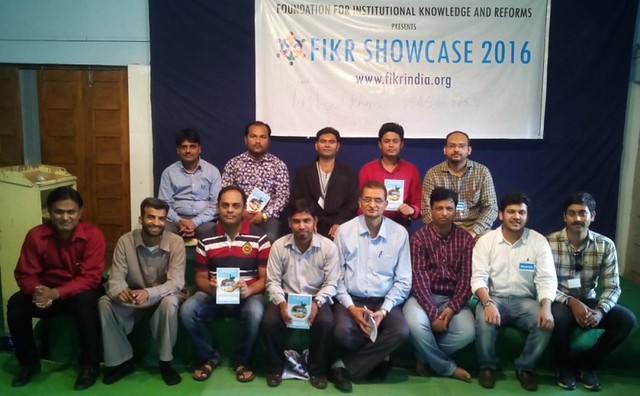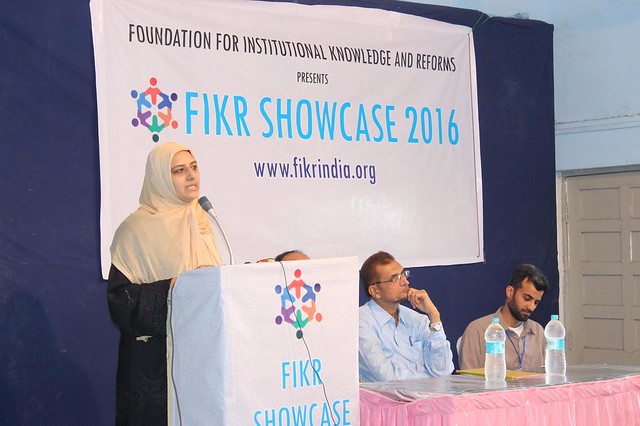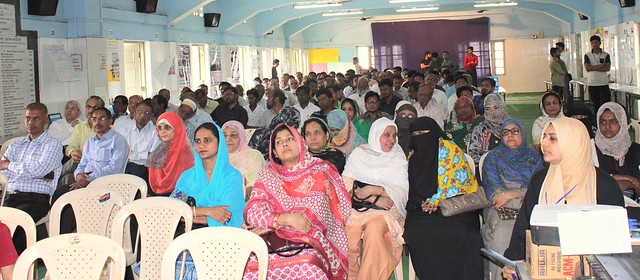By Moin Qazi for TwoCircles.net
Nagpur: A new wave of Muslim social entrepreneurs have embarked on path-breaking initiatives in the city with a potential to redefine the community’s social, developmental and educational agenda. A number of innovative initiatives have been launched this year in Vidarbha and their synergy is expected to help the community confront a number of issues.
Several Commissions were appointed by the government to study the socio economic conditions of Muslims in India. The Sachar Committee and the Justice Ranganath Mishra Commission (2008) recommended a series of affirmative actions to be taken by the Government in order to restore justice to Muslims and improve their plight to the level of national averages.

In order to create awareness about various socio-economic and educational issues of the community specific to the region and working out local applicable solutions, a think-tank, the Centre for Social Research and Empowerment (CSRE) was launched on the eve of Independence Day in the city under the mentorship of Zafar Mahmood, Chairman of Zakat Foundation of India.
One of the key objectives of CSRE is to sensitise people to the new changing economic, educational and social environment and to empower them to successfully navigate the same. The CSRE identified that educating and proper choice of careers could underpin all these areas and an increase in the community’s participation in various services would have a multiplier effect that could build its own momentum and transform the community.
Abdul Rauf Shaikh, the key architect of the centre and former Chief Officer of Maharashtra Wakf Board, feels that if the financial strength of Wakfs is properly tapped it can solve all major problems of the community. Most of the 27 state Waqf boards are headed either by not-too-highly qualified CEOs or by government officials holding the post as additional charge.
The Sachar Committee had said, “Up to 200 Group A officers are needed to service the Waqf affairs across India” and recommended, “The government may, therefore, consider creating a new cadre of officers to be recruited by the UPSC so that they can deal with the specific affairs of the Waqfs efficiently.”
The CSRE functions unlike the usual centre being run by government or community organisations. It is a comprehensive, developmental program designed to assist individuals in making and implementing informed educational and occupational choices.

Afroz Jahan Memorial Trust, Amravati is a philanthropic partner, providing financial support to the Centre. The list of prominent social scientists, academicians, social activists, doctors, engineers, advocates and industrialists who have come together to work for the socio-economic empowerment of the Muslim community include : S.W. Naqwi (IFS), Ex. Principal Chief Conservator of Forest, Govt of Maharashtra, M.I Shaikh, Director General of MERY, Water Resources Department, B.A.Shaikh, Retd Principal District Judge and Judicial Member Of Consumer Forum, Moin Qazi, noted scholar and a senior banker , Majeed Parekh, Islamic scholar, Mujib Khan, Ex. Dy. Commissioner, Abdul Rauf Shaikh, Ex. CEO Maharashtra Waqf Board, Khwaja Rabbani, Director of Archaeology, Mujeeb Siddiqui, Senior Mineral Economist, Abdul Waheed , AGM, State Bank of India ,Aftab Alam, Sr. Manager Bank Of Maharashtra, Zafar Khan, Principal, Qidwai High School and Jr. College, Faiz Waheed, technocrat and social entrepreneur, Rizwan Mirza, Chartered Accountant.
Many NGOs engaging in the city with a common goal
In order to identify themselves with national issues, city-based NGOs are also working on common issues affect the society. Yashodhara Foundation, headed by Tanveer Mirza, has come up with a project for saving vanishing birds from city area. In the last three years, the NGO has made and supplied 1,000 bird houses free to the citizens. It is also in the vanguard of the social forestation drive in the city.
Yashodhara , which also works in the area of rural development, has been running a series of workshops for training unemployed youths in driving. The work is being done in collaboration with ELITE, a city-based residential institute, known for offering free defensive driving course to rural youths.
A person who was present at the workshop said, “More than a good driver, we are being trained to become good citizens on the streets. We are taught that a driver is not just someone who knows how to drive. He is someone responsible for his and the passenger’s life.”

M N Siddique who runs ELITE says, “It’s a 20-day course where the youths are provided residential and food facility, all for free. It’s been nine months since the institute started and we have trained more than 1,000 youths out of which more than 50% have received campus placement in private companies as well as government offices.”
Another path breaking initative is led by a team of young and enterprising technocrats headed by Faiz Wahid. Fikr Care is an NGO which focuses on strengthening the technical backbone of community organisation so as to enable them to improve their systems and process. Recently it launched an intensive survey “Outlook study of NGOs working in Muslim Community Nagpur” to collect and analyse data of all NGOs working in Muslim community in Nagpur.
It conducted in-person interactions using a Structured Questionnaire capturing details including contact info, legal standing & activism, sources of funds, current and future focus on 119 work areas and needs of the surveyed organizations. The result is a very exhaustive directory of these NGO. The survey has been an eye-opener for the community because it revealed several unique insights into the community’s activist role.
As a follow up of this, Fikr brought these NGOs on a common platform and connected them with the larger society. An event, “NGO Showcase” was organised in which NGOs of the city shared their work and philosophy. It was one of the most unique events in the city’s recent history.
Several such initiatives hope to redefine the contours of Nagpur’s socioeconomic and educational landscape. The uniqueness of all of them is that they are being led by totally apolitical groups who are not just tech savvy but have vast experience in the mainstream sectors.
The community initiatives in the region have got a big boost through the creative enterprise of Dr Salim Jahangir who teaches mass communication and has launched his own independent channel 121 Scoop which is fast emerging as a powerful crusading voice on mainstream Muslim issues. Jahangir recently ran a series on issues relating to Waqfs which was part of Rauf Shaikh’s campaign to bring the issue of waqfs on the mainstream agenda of the community. Jahangir has ambitious plans and he wants to scale his venture so that it finally fills the huge vacuum the community faces in media space.
“I would try to give voice to those who are voiceless, time to those who are not getting time and space in mainstream media. My efforts would be to dig out voices which inspire the people especially in the field of true democracy, education, health etc. I promise it would be a mirror of the society which will reflect image of truth because I have firm faith in God and truth and believe that truth prevails,” optimistic Jahangir says with confidence.
(Moin Qazi is a well known expert in microfinance and for coauthoring the widely popular book, The Essential Microfinance. He is a PhD in English and Economics. He was associated with SBI for three decades as a grassroots field officer, program manager, policy maker and researcher in development finance)

